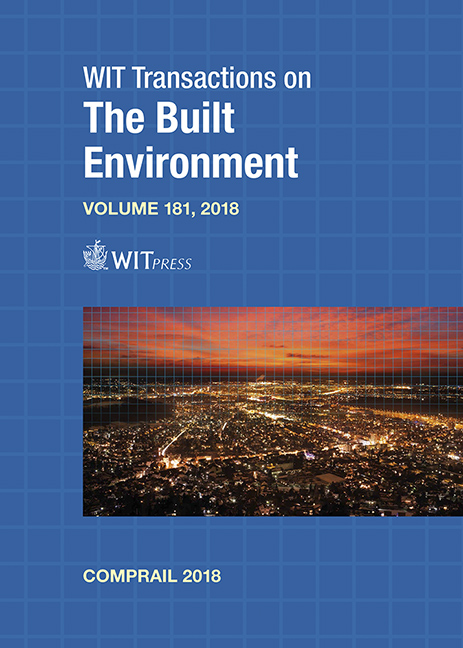ANALYSIS OF TEMPORAL FACTORS INFLUENCING MINIMUM DWELL TIME DISTRIBUTIONS
Price
Free (open access)
Transaction
Volume
181
Pages
12
Page Range
447 - 458
Published
2018
Size
316 kb
Paper DOI
10.2495/CR180401
Copyright
WIT Press
Author(s)
TIMOTHY PEDERSEN, THOMAS NYGREEN, ANDERS LINDFELDT
Abstract
The minimum dwell time is an important part of railway timetable planning. Due to its stochastic behaviour, the minimum dwell time should be considered to create resilient timetables. While there to our knowledge has been significant focus on how to determine and estimate dwell times, little research has been carried out regarding temporal and running direction variations of these. In this paper we examine how the minimum dwell time varies depending on temporal factors such as the time of the day, day of the week and time of the year. We also examine how it is affected by running direction and station type. The minimum dwell time is estimated by means of track occupation data. A method is proposed to ensure that only minimum dwell times and not planned dwell times are acquired from the track occupation data. The results show that on an aggregated level, the average minimum dwell times in both running directions at a station are similar. However, when temporal factors are considered, there are significant variations. The minimum dwell time varies throughout the day with peak hours having the longest dwell times. It is also found that the minimum dwell times are influenced by weekday, and in particular weekends are found to have lower minimum dwell times than most other days. The findings show that there is a potential to significantly improve timetable planning by taking minimum dwell time variations into account.
Keywords
minimum dwell time, operations quality, timetable planning, track occupation data





